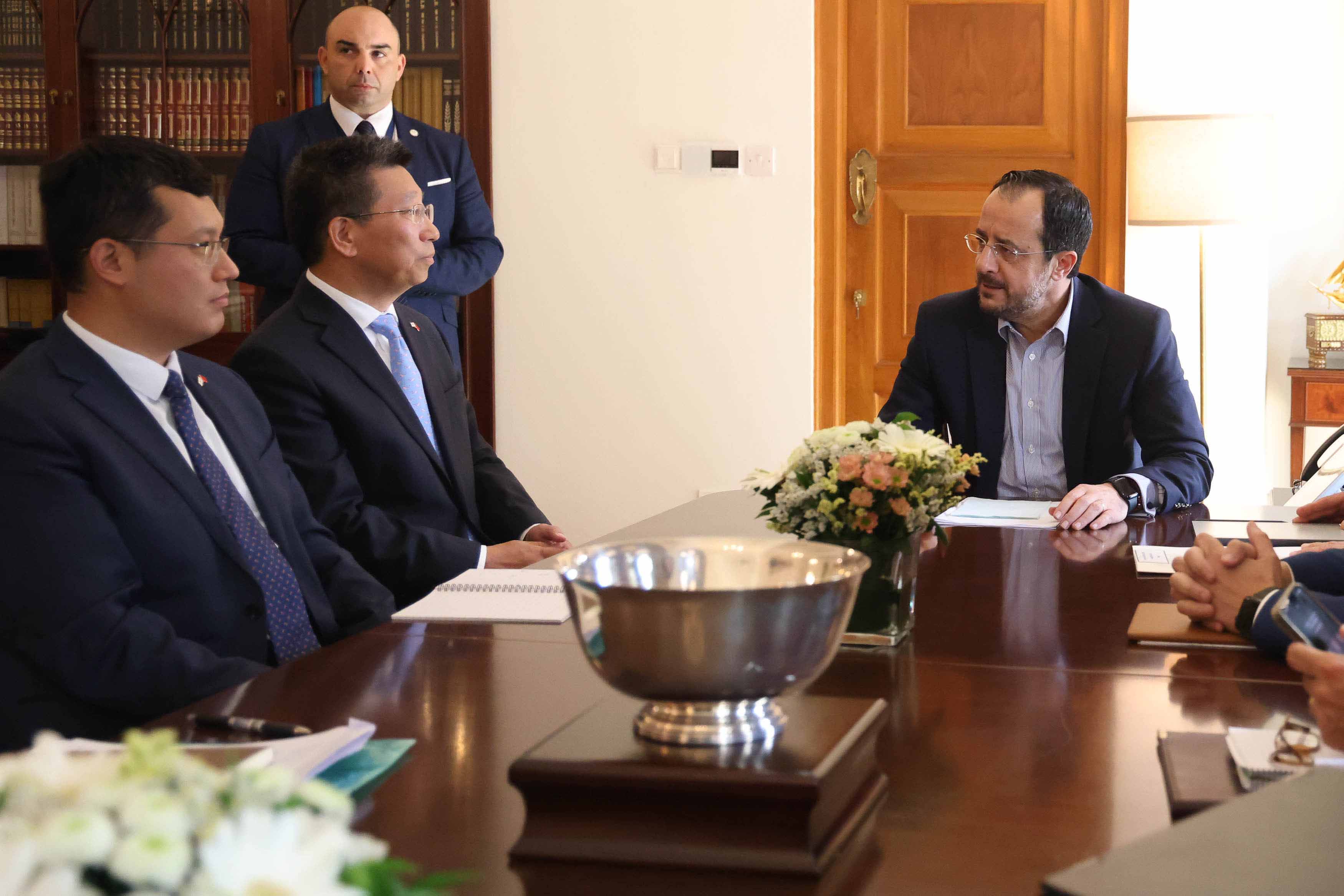The Vasiliko liquified natural gas (LNG) project is “not shipwrecked” President Nikos Christodoulides said on Tuesday after widespread speculation that the project’s future was looking increasingly dire.
Christodoulides, in answer to a question on the matter from a journalist at a Chamber of Shipping event in Limassol, assured attendees the project was on course, stating, “there is no shipwreck.”
The discussion was ongoing and it was not right to make public statements at this stage, he added.
“The only goal [is] to implement a project of strategic importance [for Cyprus] for which two extensions have already been given,” Christodoulides said.
Speaking to CyBC earlier, energy expert Charles Ellinas had said it was unclear who is in the right in the ongoing dispute between local stakeholders and the Chinese consortium in charge of delivering the goods. The state is locked into a situation from which it will be difficult to extricate itself, Ellinas said.
The expert noted it was imperative for a compromise to be reached, since the Vasiliko terminal (now standing at 50 per cent complete) would save close to €300 million every year in fuel costs.
“With every year of the project remaining half-finished, we lose this amount,” Ellinas cautioned.
Terminating the contract and finding someone other than the Chinese consortium CPP Metron (CMC) to complete the project – an idea which has been floated by the state as a ‘Plan B’ – would be very difficult to carry out in practice and would cause years of additional delay, the expert added.
Christodoulides clarified that his intervention on Monday, during which he met Chinese ambassador Liu Yantao over the issue, had been exclusively “political and diplomatic” and that if needed such involvement on his behalf would continue.
Despite the fact that presidential intervention “should not have been necessary”, Christodoulides added, the state must ensure all procedures are followed.
The meeting at the Presidential Palace lasted two hours although no statements were made afterwards. Energy Minister George Papanastasiou also attended.
Justifying his involvement, Christodoulides said that “the government acts as agent for the Cypriot people and its concern is to facilitate their interests.”
“I don’t do technical negotiations,” he said.
Prior to Monday’s meeting CMC had demanded a meeting with a “decision maker” to take place in a neutral location, such as Dubai, to resolve sticking points in the project.
Ellinas also expressed the opinion that the president’s intervention had been something of a misstep, emphasising that “decisions won’t be reached through political meetings but with expert advice.”
The government is currently in arbitration in London with (CMC), which has undertaken construction of the onshore project, seen as a key infrastructure for Cyprus’ energy needs.
CPP had filed a claim with the court of arbitration for additional compensation from the Cyprus government amounting to €200 million, alleging that Cyprus has altered the terms of the original contract.
Only two months ago CMC and the Cyprus government appeared to have put aside disputes and construction was resumed after the Chinese-led company halted work earlier in the year.
Those statements had come on the heels of the Chinese consortium expecting the natural gas infrastructure company (Etyfa) to pay up, which wasn’t done, Ellinas said.
In late March, China’s ambassador said the work would be finished by the end of this year and that the floating storage and regasification unit (FSRU) Prometheas, was “more than 99 per cent complete” with the vessel expected to be formally delivered to Cyprus by April or May. The ship is still in Shanghai.
Over the weekend, CMC said that their suspension of work in January had been an “absolute last resort” which they lifted in March on assurances that Etyfa would clear debts [owed] and that going forward would comply with the contractual procedures and timetable for approving payments.
“Regardless of whether or not we continue with the company [CMC] the arbitration process will be ongoing and its decision may not be in [Cyprus’] favour,” Ellinas warned. This does not mean it would be completely against Cyprus, however, a cost would have to be borne.
It is imperative for the project to be actualised because the high cost of oil, which is set to remain high, combined with the low cost of natural gas, which is set to remain low due to the high quantities of LNG flooding the market, would reduce Cyprus’ electricity costs by a third, Ellinas said.
“This is a huge amount. The costs for the EAC would be reduced by at least $300 million per year recouping losses [of the past].”
The only course of action is to employ independent experts to advise on the matter, Ellinas added, saying that neither Etyfa nor the natural gas public company (Defa) had experts up to the task.
The LNG terminal project has been funded with €101 million from the European Commission and €240 million from EU banks.






Click here to change your cookie preferences